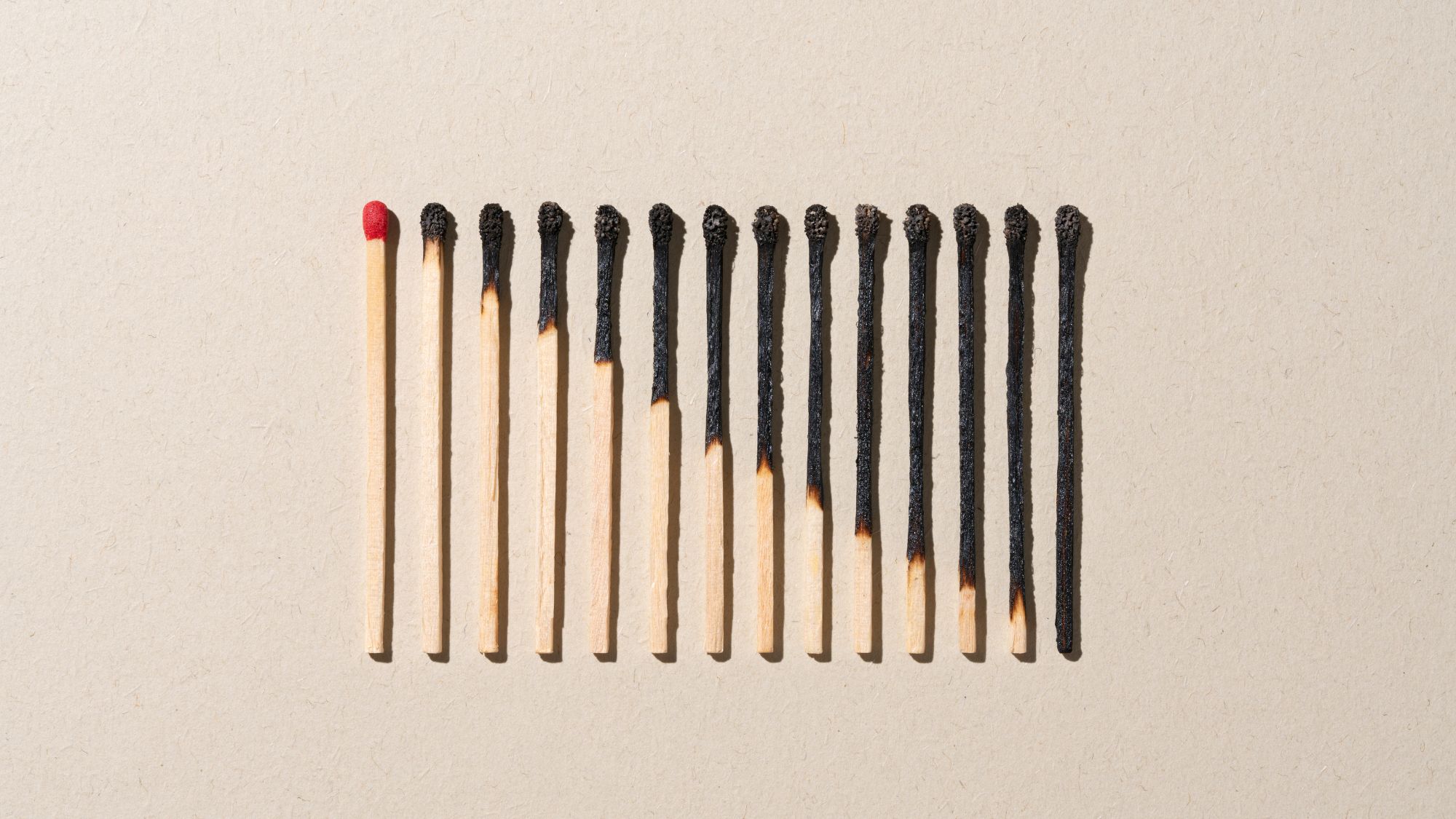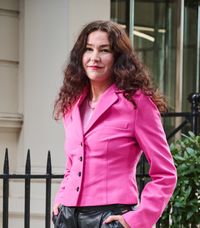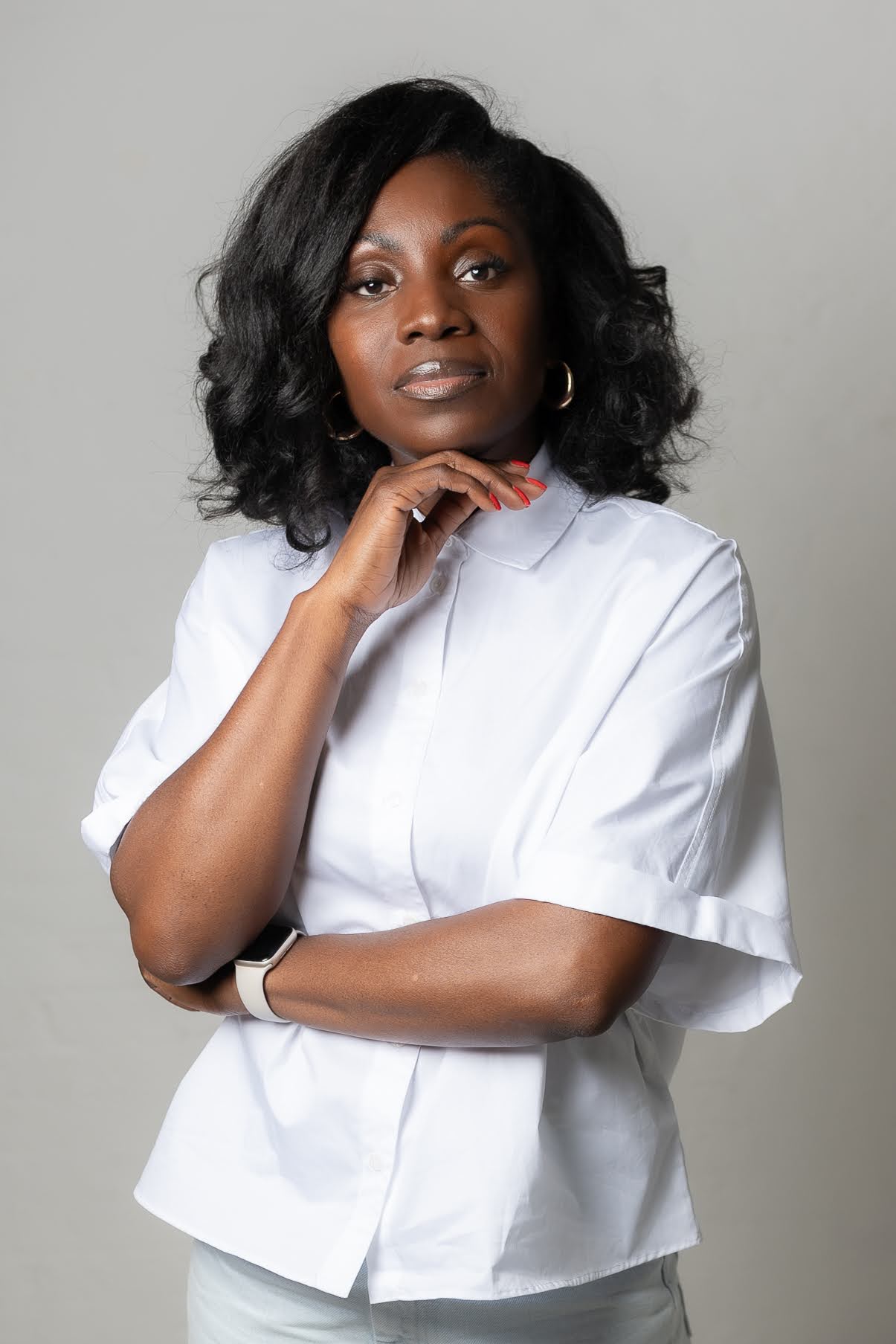“We’re told we can have it all, which invariably means we can do it all.”
Women take on the majority of the emotional, domestic and care work, and it’s leading to burnout, says Author Tamu Thomas


Overworking, over-giving and over-functioning is leading to burnout.
As a society, we’re obsessed with self-optimisation; we track and tally our most basic functions in a desperate bid to do things—even as primal as sleep—better. And as women, this obsession is compounded by another cultural conditioning - the ‘good girl’ myth. As Jane Fonda explained in our Power Issue, “Good girls—I was taught—were not supposed to be ambitious, or angry, or assertive.” It took Fonda seven decades and three marriages to free herself from what she calls “the good girl cultural conditioning”. Good girl conditioning is what keeps women in a cycle of prioritising the needs of others above their own, and we see it play out in every corner of society, from the office to the home.
It’s an experience Tamu Thomas, author of the new book Women Who Work Too Much, knows all too well. Here, the leadership coach and keynote speaker recalls her first anxiety attack and how the experience taught her to break free from toxic productivity and help other women separate their worth and identity from their productivity.
By Tamu Thomas
In September 2017, I had an anxiety attack on my way to work. I could barely breathe; my heartbeat felt like a punching bag, sweat beads were forming across my hairline, and my vision was blurry. I considered calling an ambulance but told myself I was making a fuss. Fortunately, I had tools that helped me regulate myself enough to get to work. I didn’t know it was an anxiety attack at the time and chastised myself for not having my act together.
I had experienced milder versions of this before and flippantly described them as “periods of heightened anxiety”. I had normalised chronic busyness, stress and exhaustion. Chronic busyness and my ability to mask stress and push through exhaustion were rewarded with praise and respect. It made me ‘good’, and I relished it. Being busy and relied upon gave me a sense of importance and worth. It made me feel I’d earned my place as a professional woman and mother. Anything less was lazy, and being perceived as lazy threatened my standing as a productive person.

Tamu Thomas
I felt like my body was about to implode, and I was terrified, so I made an appointment with my GP who confirmed I was experiencing depression and anxiety. I refused the medication because this was the permission slip I needed to take better care of myself. I couldn’t be accused of being weak or lazy if I had a medical reason to slow down. When I finally got to see a psychotherapist, they explained that I had probably been depressed but high functioning for some time, which led to anxiety. She said it sounded like my strong will had allowed me to suppress my anxiety for a long time, which is what led to the anxiety attacks.
Celebrity news, beauty, fashion advice, and fascinating features, delivered straight to your inbox!
Reflecting on my childhood and the childhoods of women around me, I realised that we all had something in common: we were raised to be ‘good girls’ and being good meant learning how to invalidate our feelings so we could be convenient and productive. As I write in my book, Women Who Work Too Much, we are taught that our innate human needs are an inconvenience, and we set about perfecting the skill of self-abandonment in exchange for being ‘convenient’ and ‘productive.’
I couldn’t be accused of being weak or lazy if I had a medical reason to slow down.
When we are hurt, we are told not to cry, to be brave, and our pain is minimised or denied. As we swallow down primal sounds and hold onto our tears, we are rewarded with praise – four simple words woven together to create a sentence that is intended to be loving but, in this situation, is embodied as stifling: ‘There’s a good girl.’ Who doesn’t want to be ‘good’? We learn that pain must be suppressed if we are to be good, and bravery is promoted over empathy.
This conditioning normalises and even glorifies toxic levels of productivity and burnout. Burnout is not just a buzzword; in 2019, the World Health Organisation classified it as an “occupational phenomenon” characterised by exhaustion, cynicism, and reduced professional efficacy. This phenomenon is not limited to our occupations; it is part of how we are socialised as girls.
We learn that pain must be suppressed if we are to be good, and bravery is promoted over empathy.
Many of us are raised to be ‘selfless’ to prioritise the needs of others above our own and not to make a fuss. Each Mother’s Day, you see a plethora of social media posts praising mothers for being selfless - women are praised for not considering themselves. This conditioning makes womanhood synonymous with martyrdom, and anything other than putting your needs last is seen as selfish. This is true in the home and the office; we’re told we can have it all, which invariably means we can do it all. We still take on the majority of the emotional, domestic and care work within our households and the long-term impact of this is devastating.
In my case, I am a single mother, and my good-girl conditioning included living up to the ‘strong Black woman’ stereotype. I learnt to be hyper-independent, that vulnerability is weakness, and that it was ok for me to feel bad, but I couldn’t look bad and asking for help looked ‘bad’. This pattern of over-functioning to prove myself worthy led to me existing in a state of exhaustion for a decade, culminating in the burnout I experienced in 2017. The pressure to be ‘good’ was depleting physically, mentally and emotionally.
We’re told we can have it all, which invariably means we can do it all.
I had just turned 40, and contrary to the glossy magazines I read as a teenager, it did not feel like my life was about to begin. I realised that I could leave the conditioning of my childhood behind and create new conditions that made my life feel like mine. This led to me redefining success and creating new ‘success standards’ based on how I wanted my life to feel.
I wanted my life to feel powerful, pleasurable, and peaceful. These words are my north star, and they have led me to become a coach, keynote speaker, published author, and, most importantly, a role model to my daughter about what womanhood can be when we decide to be bold women instead of good girls.
Tamu Thomas is an author, leadership coach, and keynote speaker who is passionate about empowering ambitious mission-driven women and organisations who want their work to be a positive force for good. Her new book, Women Who Work Too Much is out now

Mischa Anouk Smith is the News and Features Editor of Marie Claire UK.
From personal essays to purpose-driven stories, reported studies, and interviews with celebrities like Rosie Huntington-Whiteley and designers including Dries Van Noten, Mischa has been featured in publications such as Refinery29, Stylist and Dazed. Her work explores what it means to be a woman today and sits at the intersection of culture and style. In the spirit of eclecticism, she has also written about NFTs, mental health and the rise of AI bands.